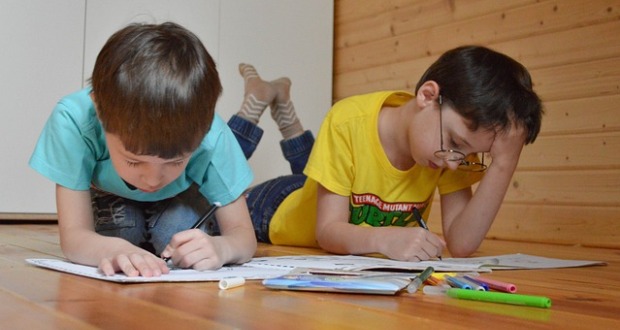Nurturing Faith through Catholic Homeschooling: Empowering Parents in Religious Education

Introduction:
In a rapidly evolving educational landscape, concerns arise regarding the potential impact on the faith of children. While the education system can present challenges to the religious upbringing of young individuals, there are ways to counteract these influences and cultivate strong foundations of faith.
Catholic homeschooling provides a unique opportunity for parents to take an active role in the faith formation of their children. By choosing this educational path, parents can foster a rich environment where academic learning and spiritual growth go hand in hand. This post explores the benefits and considerations of Catholic homeschooling, emphasizing the role of parents in nurturing their children’s faith.
- Strong Foundation in Catholic Teachings: Catholic homeschooling enables parents to create a curriculum deeply rooted in Catholic teachings. They can tailor academic subjects to align with their faith, ensuring a consistent integration of religious values throughout the educational experience. This approach allows children to develop a comprehensive understanding of their faith alongside other areas of study.
- Personalized Religious Education: With Catholic homeschooling, parents have the flexibility to personalize religious education according to their children’s needs. They can adapt teaching methods, incorporate religious texts and resources, and engage in faith-centered discussions. This personalized approach fosters a deep understanding of Catholic beliefs, practices, and moral values, providing children with a solid spiritual foundation.
- Sacramental Preparation: homeschooling allows for focused sacramental preparation within the family. Parents can guide their children in the preparation for important milestones such as First Holy Communion and Confirmation, incorporating religious instruction, prayer, and reflection into their daily routine. This personalized approach ensures that children are well-prepared to receive these sacraments and understand their significance.
- Faith-Focused Community Engagement: While homeschooling, it is important to actively engage in faith-focused community activities. Parents can seek opportunities for their children to participate in parish events, youth groups, retreats, and service projects. These experiences help children develop a sense of belonging within the broader Catholic community and foster relationships with peers who share their faith.
- Encouraging Prayer and Spiritual Practices: Catholic homeschooling allows for intentional emphasis on prayer and spiritual practices. Parents can incorporate regular prayer times, family devotions, and liturgical celebrations into their daily routines. This nurturing environment encourages children to develop a personal relationship with God and cultivates a vibrant prayer life that extends beyond formal religious education.
- Formation in Virtues and Moral Development: Catholic homeschooling provides a unique opportunity for parents to actively foster the formation of virtues and moral development. By integrating character education into daily lessons, parents can teach their children about compassion, integrity, humility, and other virtues rooted in Catholic teaching. This holistic approach to education nurtures children’s moral compass and equips them to navigate the complexities of the world with a strong faith foundation.
Recommended Homeschooling Resources
Here is a list of five (5) recommended Catholic homeschooling resources:-
- Seton Home Study School: Seton Home Study School is a respected Catholic homeschooling program that offers a comprehensive curriculum for students from kindergarten through high school. Their curriculum is faithful to Catholic teachings and provides parents with structured lesson plans, textbooks, and online resources.
- Our Lady of Victory School: Our Lady of Victory School is another popular Catholic homeschooling program that offers a complete curriculum for students in grades Pre-K through 12. Their curriculum is designed to instill a deep understanding of the Catholic faith while providing a strong academic foundation.
- Catholic Heritage Curricula: Catholic Heritage Curricula provides homeschooling materials and resources that align with Catholic teachings. They offer a range of curriculum options, including religious education, language arts, math, science, and more, tailored to different grade levels.
- Mater Amabilis: Mater Amabilis is a Catholic Charlotte Mason-inspired homeschool curriculum that emphasizes living books, nature study, and hands-on learning. It offers a gentle and holistic approach to education, integrating the Catholic faith into various subjects.
- Kolbe Academy: Kolbe Academy offers a classical Catholic homeschool curriculum that focuses on the development of the whole child—intellectual, spiritual, and moral. Their program combines traditional academic subjects with a strong emphasis on Catholic teachings and the integration of faith throughout the curriculum.
Conclusion:
Catholic homeschooling empowers parents to play a central role in their children’s faith formation. Through personalized religious education, sacramental preparation, community engagement, prayer and spiritual practices, and formation in virtues, parents create an environment that nurtures children’s faith and fosters their spiritual growth. By embracing this educational path, parents can instill a lifelong love for Catholicism and equip their children with the tools to live as faithful disciples of Christ.






